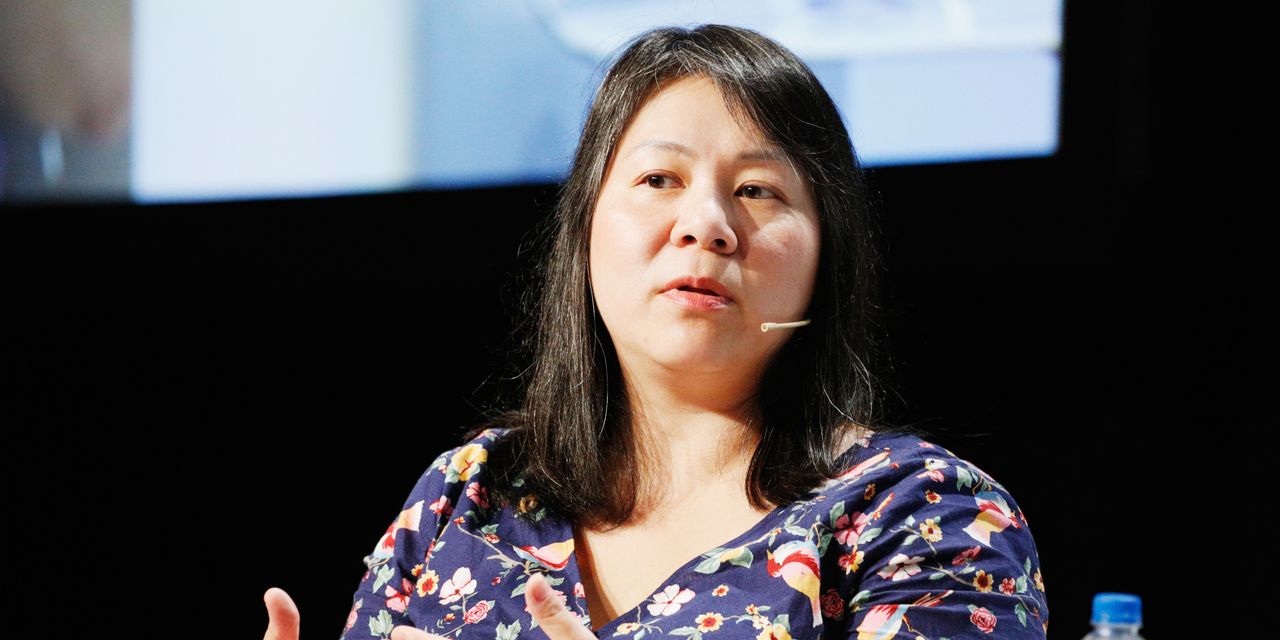“‘Don’t Call Me Karen.’”
That’s a phrase featured in a divisive title for training events at Uber Technologies Inc. that rankled the rank and file at the ride-hailing and food-delivery company in recent days.
What’s more, this workplace-sensitivity program has led to at least one executive — Bo Young Lee, Uber’s head of diversity, equity and inclusion — getting suspended.
Uber
UBER,
employees reportedly expressed outrage over the inclusion head’s “Don’t Call Me Karen” events, which the company described as conversations “diving into the spectrum of the American white woman’s experience.” The events drew on examples of women sometimes deemed “Karens.”
The derogatory term has come to describe stereotypes of privileged white women who “demand to speak to a manager” or carry out racist microaggressions. And on the latter, using “Karen” to describe women behind often racially motivated public rants found traction with the 2020 phone call to 911 from Central Park dog walker Amy Cooper, a white woman, who falsely alleged that birdwatcher Christian Cooper, a Black man, posed a threat to her safety. She was charged with filing a false police report.
From the archives (May 2021): Why are ‘Karens’ so angry?
Grievances against so-called Karens often hinge on what the broader public says is an assumption of entitlement among white people — in these cases, white women — when sharing public spaces or in customer-service exchanges with people of color.
Dara Khosrowshahi, Uber’s chief executive, and Nikki Krishnamurthy, the chief people officer, or head of its human resources, last week asked Lee “to step back and take a leave of absence while we determine next steps,” according to an email to select employees, the New York Times reported.
An Uber spokesman confirmed to MarketWatch that Lee was taking a leave of absence, but offered no additional details.
Invitations to the Uber sessions, according to several news outlets, said employees would hear from white women who work at Uber, with a focus on the negative “Karen persona.” The sessions were intended to be an “open and honest conversation about race,” according to the invitation.
Workers instead said they felt the events took the tone of lectures singling out the difficulties purportedly experienced by white women and why “Karen” was a derogatory term. They shared in Slack messages that Lee was dismissive, they thought, of concerns around the events, according to the Times report.
The uproar no doubt challenges Khosrowshahi, who has been carefully steering the company away from a reputation as a troubled workplace under the direction of its former chief executive, Travis Kalanick. Kalanick was forced out in 2017 amid a scandal about its aggressive culture and reports that he had ignored allegations of sexual harassment.
It was Khosrowshahi who grew Lee’s role after she joined the company in 2018.
Diversity, equity and inclusion, or DEI, as it’s broadly shortened, has elevated a focus on creating a well-rounded workforce with a deeper bench of candidates and a healthier work environment, especially between executives in power and the wider payroll. What’s more, DEI is increasingly pushed out of the HR fold and into its own role, often at the top levels of management. According to the consulting firm McKinsey & Company, some 53% of Fortune 500 companies have a chief diversity officer or equivalent role.
But DEI roles have also fueled political pushback that alleges the elevation of such “woke” practices in corporate America distracts focus from generating profit, boosting salaries and delivering returns to investors.
From the archives (March 2023): ‘Woke’ is being used to describe everything and nothing. What does it actually mean?
Read the full article here




